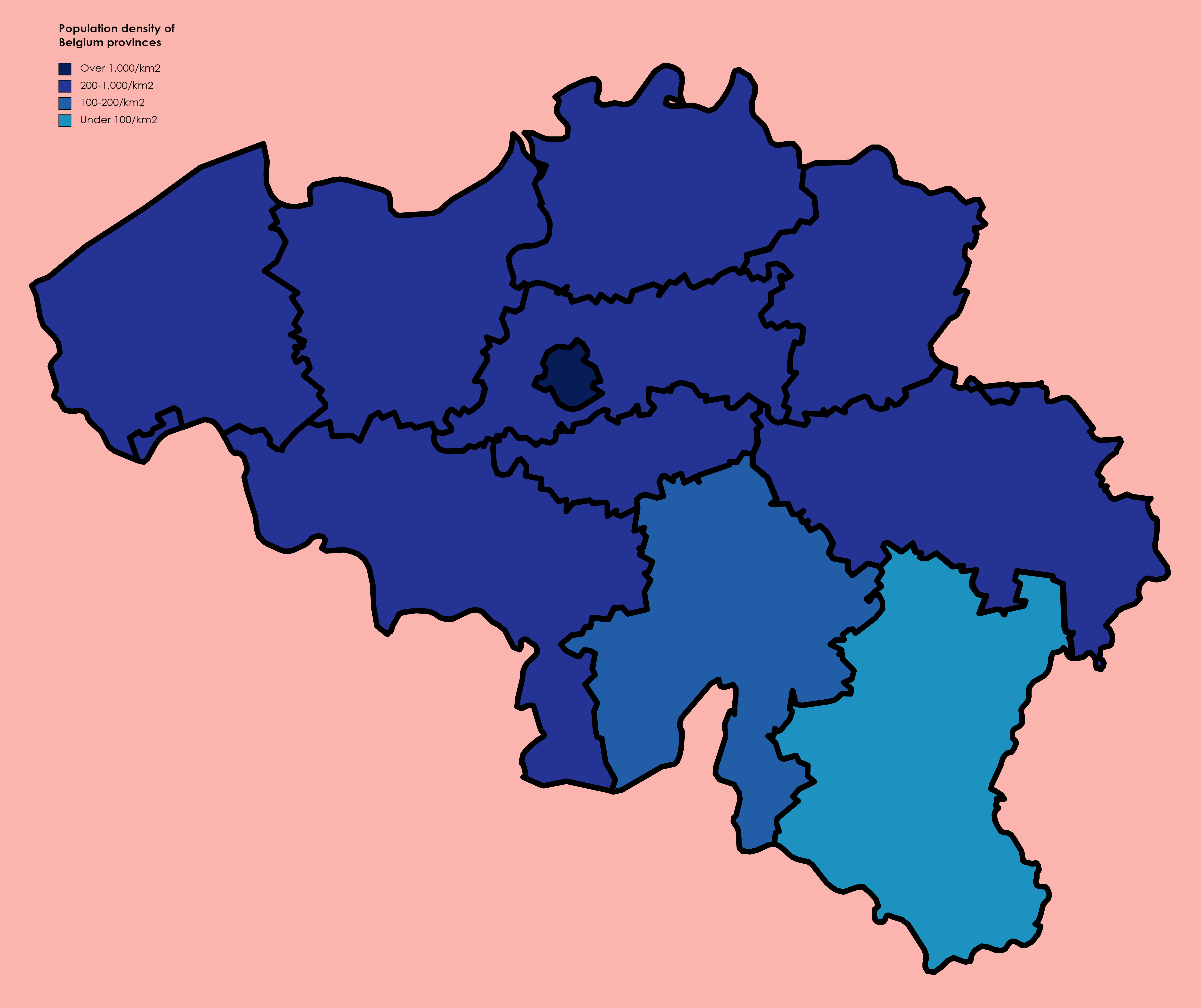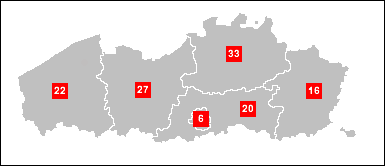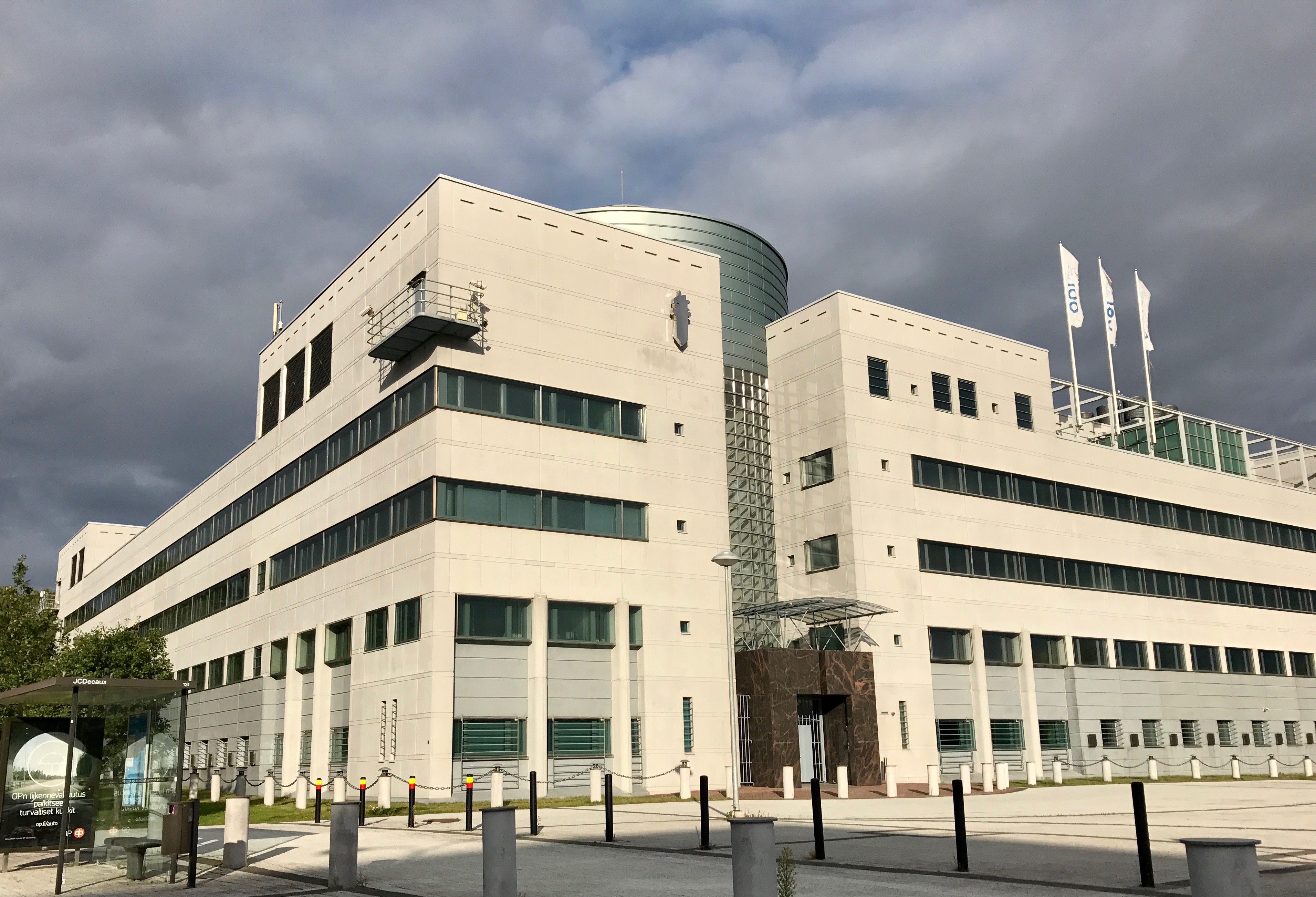|
Communities, Regions And Language Areas Of Belgium
Belgium is a federation, federal state comprising three communities and three regions that are based on four language areas. For each of these subdivision types, the subdivisions together make up the entire country; in other words, the types overlap. The language areas were established by the History of Belgium#The rise of the federal state, Second Gilson Act, which entered into force on 2 August 1963. The division into language areas was included in the Constitution of Belgium, Belgian Constitution in 1970. Through state reform in Belgium, constitutional reforms in the 1970s and 1980s, regionalism (politics), regionalisation of the unitary state led to a three-tiered federation: federalism, federal, regional, and community governments were created, a compromise designed to minimize linguistic, cultural, social, and economic tensions. Schematic overview This is a schematic overview of the basic federal structure of Belgium as defined by Title I of the Belgian Constitution. Ea ... [...More Info...] [...Related Items...] OR: [Wikipedia] [Google] [Baidu] |
Belgium
Belgium, officially the Kingdom of Belgium, is a country in Northwestern Europe. Situated in a coastal lowland region known as the Low Countries, it is bordered by the Netherlands to the north, Germany to the east, Luxembourg to the southeast, France to the south, and the North Sea to the west. Belgium covers an area of and has a population of more than 11.8 million; its population density of ranks List of countries and dependencies by population density, 22nd in the world and Area and population of European countries, sixth in Europe. The capital and Metropolitan areas in Belgium, largest metropolitan region is City of Brussels, Brussels; other major cities are Antwerp, Ghent, Charleroi, Liège, Bruges, Namur, and Leuven. Belgium is a parliamentary system, parliamentary constitutional monarchy with a complex Federation, federal system structured on regional and linguistic grounds. The country is divided into three highly autonomous Communities, regions and language areas o ... [...More Info...] [...Related Items...] OR: [Wikipedia] [Google] [Baidu] |
French Community Of Belgium
In Belgium, the French Community (, , CFB) refers to one of the three constituent constitutional linguistic communities. Since 2011, the French Community has used the name Wallonia-Brussels Federation (, , FWB), which is controversial because its name in the Belgian Constitution has not changed and because it is seen as a political statement. The name "French Community" refers to the French language and not to France. As such, the French Community of Belgium is sometimes rendered in English as "the French-speaking Community of Belgium" for clarity, in analogy to the German-speaking Community of Belgium. The Community has its own parliament, government, and administration. It and its predecessor entity have used the flag of Wallonia since 1975. History Belgium was transformed from the unitary into a federal state. The first state reform of 1970 introduced the "cultural communities" including the French Cultural Community (''Communauté culturelle française''). This was ... [...More Info...] [...Related Items...] OR: [Wikipedia] [Google] [Baidu] |
Arrondissements Of Belgium
Arrondissements of Belgium (plural in ) are administrative division, subdivisions below the provinces of Belgium. There are administrative, judicial and electoral arrondissements. These may or may not relate to identical geographical areas. Belgium, a federalized state, geographically consists of three regions and communities of Belgium, regions, of which only Flanders and Wallonia are subdivided into five provinces of Belgium, provinces each; Brussels is neither a province nor is it part of one. Administrative The 43 administrative arrondissements are an administrative level between the Commune (subnational entity), municipalities and the provinces. Brussels-Capital forms a single arrondissement for all 19 municipalities in the region by that name. As an exception, the arrondissement of Verviers has two NUTS codes: BE335 for the French-speaking part and BE336 for the German-speaking part. The latter is identical to the area of the German-speaking community. Judicial Be ... [...More Info...] [...Related Items...] OR: [Wikipedia] [Google] [Baidu] |
Antwerp
Antwerp (; ; ) is a City status in Belgium, city and a Municipalities of Belgium, municipality in the Flemish Region of Belgium. It is the capital and largest city of Antwerp Province, and the third-largest city in Belgium by area at , after Tournai and Couvin. With a population of 565,039, it is the List of most populous municipalities in Belgium, most populous municipality in Belgium, and with a metropolitan population of over 1.2 million people, the country's Metropolitan areas in Belgium, second-largest metropolitan area after Brussels. Definitions of metropolitan areas in Belgium. Flowing through Antwerp is the river Scheldt. Antwerp is linked to the North Sea by the river's Western Scheldt, Westerschelde estuary. It is about north of Brussels, and about south of the Netherlands, Dutch border. The Port of Antwerp is one of the biggest in the world, ranking second in Europe after Rotterdam and List of world's busiest container ports, within the top 20 globally. The city ... [...More Info...] [...Related Items...] OR: [Wikipedia] [Google] [Baidu] |
Deelgemeente
A (, literally ''sub-municipality''), or section (), is a subdivision of a municipality in Belgium and, until March 2014, in the Netherlands as well. Belgium Each municipality in Belgium that existed as a separate entity on 1 January 1961 but no longer existed as such after 1 January 1977 as the result of a merger is considered a ''section'' or within most municipalities. In addition, the City of Brussels is also divided in four ''sections'' that correspond to the communes that existed before their merger in 1921. The term is used in Dutch and the term ''section'' in French to refer to such a subdivision of a municipality anywhere in Belgium, municipalities having been merged throughout the country in the 1970s. Herefor, ''sections'' or ''deelgemeenten'' usually were independent municipalities before the fusions in the 1970s. In French, the term ''section'' is sometimes confused with ''commune'' (for: municipality), especially in larger cities like Charleroi and Mons as ... [...More Info...] [...Related Items...] OR: [Wikipedia] [Google] [Baidu] |
Provinces Of Belgium
The Kingdom of Belgium is divided into three Communities, regions, and language areas of Belgium, regions. Two of these regions, Flanders and Wallonia, are each subdivided into five provinces. The third region, Brussels, does not belong to any province, nor is it subdivided into provinces. Instead, it has amalgamated both regional and provincial functions into a single "Capital Region" administration. Most of the provinces take their name from earlier duchy, duchies and county, counties of similar location, while their territory is mostly based on the 130 departments of the First French Empire, departments installed during French annexation. At the time of the Independence of Belgium, creation of Belgium in 1830, only nine provinces existed, including the province of Brabant, which held the City of Brussels. In 1995, Brabant was split into three areas: Flemish Brabant, which became a part of the region of Flanders; Walloon Brabant, which became part of the region of Wallonia; an ... [...More Info...] [...Related Items...] OR: [Wikipedia] [Google] [Baidu] |
Flemish Parliament
The Flemish Parliament (Dutch language, Dutch: , formerly called Flemish Council or ''Vlaamse Raad'') constitutes the legislature, legislative power in Flanders for matters which fall within the competence of Flanders, both as a geographic region and as a cultural community of Belgium (unlike the French Community of Belgium, French Community and Wallonia, which each have separate legislatures: the Parliament of the French Community and the Parliament of Wallonia). The Flemish Parliament approves Decree (Belgium), decrees, which are Flemish laws, applicable to all persons in the Flemish Region, and to Flemish institutions in Brussels; it appoints and supervises the Flemish Government; and it approves the Flemish budget. The Flemish Parliament meets in the Flemish Parliament building in central City of Brussels, Brussels, and its members and staff are housed in the House of the Flemish Representatives. History From 1830 until 1970 Belgium was a unitary state with a single govern ... [...More Info...] [...Related Items...] OR: [Wikipedia] [Google] [Baidu] |
Municipalities With Language Facilities
In Belgium, there are 27 municipalities with language facilities (; ; ), which must offer linguistic services to residents in Dutch, French, or German in addition to their single official languages. All other municipalities – with the exception of those in the bilingual Brussels region – are monolingual and offer services only in their official languages, either Dutch or French. Belgian law stipulates that: *12 municipalities in Flanders must offer services in French; of these 12, six ( located around Brussels) are now believed to have become majority French-speaking. *Wallonia contains two language areas: **In the French-speaking part of Wallonia, four municipalities offer services in Dutch and another two offer services in German. **All municipalities in the German-speaking part of Wallonia ( annexed after WWI) offer services in French in addition to German. *In Brussels, Dutch and French are co-official. *At the federal level, Dutch, French and German are all official ... [...More Info...] [...Related Items...] OR: [Wikipedia] [Google] [Baidu] |
La Libre Belgique
''La Libre Belgique'' (; ), currently sold under the name ''La Libre'', is a French-language Belgian daily newspaper. Together with ''Le Soir'', it is one of the most popular Francophone newspapers in both Brussels and Wallonia. ''La Libre'' was founded in 1884 and has historically had a centre-right Christian Democratic political stance. The papers is particularly celebrated for its role as an underground newspaper during World War I and World War II when Belgium was occupied. Since 1999, the newspaper has become increasingly European liberalism, liberal but is still considered more conservative than ''Le Soir''. History The modern ''La Libre'' traces its origins to the ''Le Patriote'' newspaper, founded by Victor and Louis Jourdain in 1884. Politically, the newspaper supported the dominant centre-right Catholic Party (Belgium), Catholic Party. After the German invasion of Belgium (1914), German invasion of Belgium in World War I, ''Le Patriote'' was banned by the German occu ... [...More Info...] [...Related Items...] OR: [Wikipedia] [Google] [Baidu] |
Public Service
A public service or service of general (economic) interest is any service intended to address the needs of aggregate members of a community, whether provided directly by a public sector agency, via public financing available to private businesses or voluntary organisations, or by private businesses subject to government regulation. Some public services are provided on behalf of a government's residents or in the interest of its citizens. The term is associated with a social consensus (usually expressed through democratic elections) that certain services should be available to all, regardless of income, physical ability or mental acuity. Examples of such services include the fire services, police, air force, paramedics and public service broadcasting. Even where public services are neither publicly provided nor publicly financed, they are usually subject to regulation beyond that applying to most economic sectors for social and political reasons. Public policy, when made ... [...More Info...] [...Related Items...] OR: [Wikipedia] [Google] [Baidu] |
Wallonia
Wallonia ( ; ; or ), officially the Walloon Region ( ; ), is one of the three communities, regions and language areas of Belgium, regions of Belgium—along with Flemish Region, Flanders and Brussels. Covering the southern portion of the country, Wallonia is primarily Geographical distribution of French speakers, French-speaking. It accounts for 55% of Belgium's territory, but only a third of its population. The Walloon Region and the French Community of Belgium, which is the political entity responsible for matters related mainly to culture and education, are independent concepts, because the French Community of Belgium encompasses both Wallonia and the bilingual Brussels-Capital Region but not the German-speaking Community of Belgium, which administers nine municipalities in Eastern Wallonia. During the Industrial Revolution, Wallonia was second only to the United Kingdom in industrialization, capitalizing on its extensive deposits of coal and iron. This brought the regio ... [...More Info...] [...Related Items...] OR: [Wikipedia] [Google] [Baidu] |






